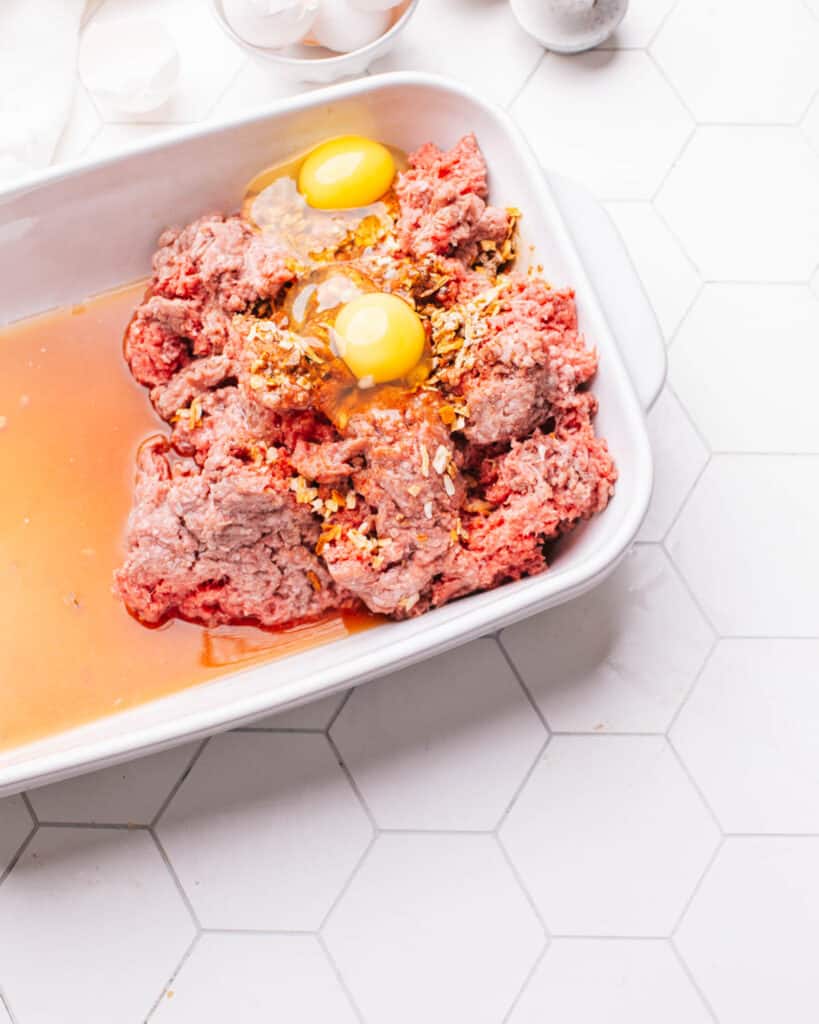When it comes to the quintessential comfort food of American cuisine, meatloaf is often at the top of the list. This dish, celebrated for its hearty texture and flavorful blend, can take on many variations depending on the cook’s preferences and the ingredients at hand. One such ingredient whose inclusion sparks a debate among home cooks and chefs alike is eggs. So, do you need eggs for meatloaf? Let’s dive into this culinary question and explore why eggs might just be the unsung hero of meatloaf.
The primary role of eggs in meatloaf is more about structure than flavor. Eggs act as a binder, helping to hold the ground meat together, ensuring that your meatloaf doesn’t fall apart when you slice it. When you mix raw eggs into the meat mixture, the proteins in the egg whites begin to coagulate as they cook. This coagulation creates a kind of web that binds the meat and other ingredients together, contributing to a meatloaf that retains its shape and can be easily served.

Additionally, eggs contribute to the overall moisture and richness of the meatloaf. Despite the lean cuts of meat often used, the fat and moisture from eggs can make the dish more succulent. Eggs help counteract the drying effect that can occur when cooking ground meat for an extended period. However, too many eggs can reverse this benefit, leading to an overly soft or spongey texture.
To incorporate eggs effectively:
- Use one large egg per pound of meat as a general rule. This proportion ensures that the meatloaf isn’t too dense or too loose.
Moreover, eggs can also play a role in flavor enhancement. They don’t have a pronounced taste themselves but help to distribute the flavors of other ingredients more evenly through the dish. Herbs, spices, and other seasonings will mingle with the egg mixture, ensuring a well-balanced flavor profile.
For those opting out of using eggs due to dietary restrictions or allergies, there are substitutes that can mimic the binding and moisture-retaining qualities of eggs:
- Oatmeal or breadcrumbs soaked in milk or broth can form a similar binding effect.
- Mashed potatoes, ricotta cheese, or silken tofu can also serve as replacements, providing the necessary moisture and helping to bind the meat.
In some recipes, you might find cooks omitting eggs entirely, relying solely on the other binders or simply not worrying if the meatloaf turns out a bit crumblier. However, for that classic, hold-together meatloaf experience, eggs are almost indispensable.
While eggs certainly enhance the meatloaf, they aren’t strictly necessary for everyone’s taste. If you prefer a lighter texture or are looking for a different culinary experience, experimenting with eggless recipes can lead to delightful results. For example, using breadcrumbs mixed with broth or adding more vegetables can provide similar structural integrity while altering the flavor and nutritional profile of your meatloaf.
In exploring the necessity of eggs in meatloaf, we uncover a broader discussion about ingredient functionality and the mutable nature of traditional recipes. Cooking isn’t just about following a set list of ingredients; it’s also about understanding the role each component plays. Whether you decide to use eggs for their binding, moisture, and flavor contributions or opt for an alternative approach, the key is to achieve a meatloaf that satisfies your palate. Remember, in the art of cooking, flexibility and creativity often lead to the most memorable dishes. Adjust, innovate, but most importantly, enjoy the process of making what has become a timeless staple in many households.



